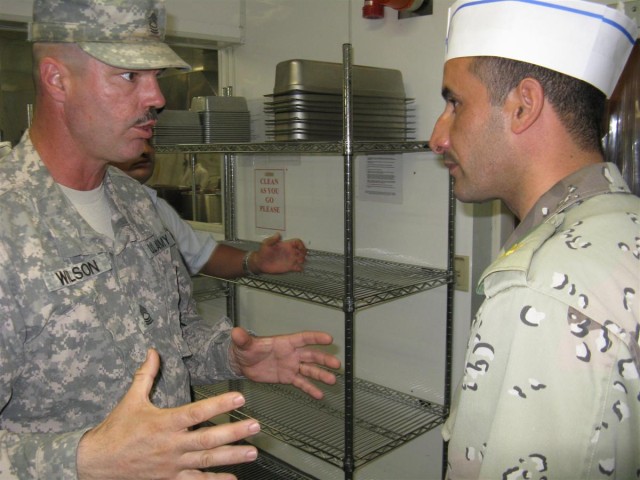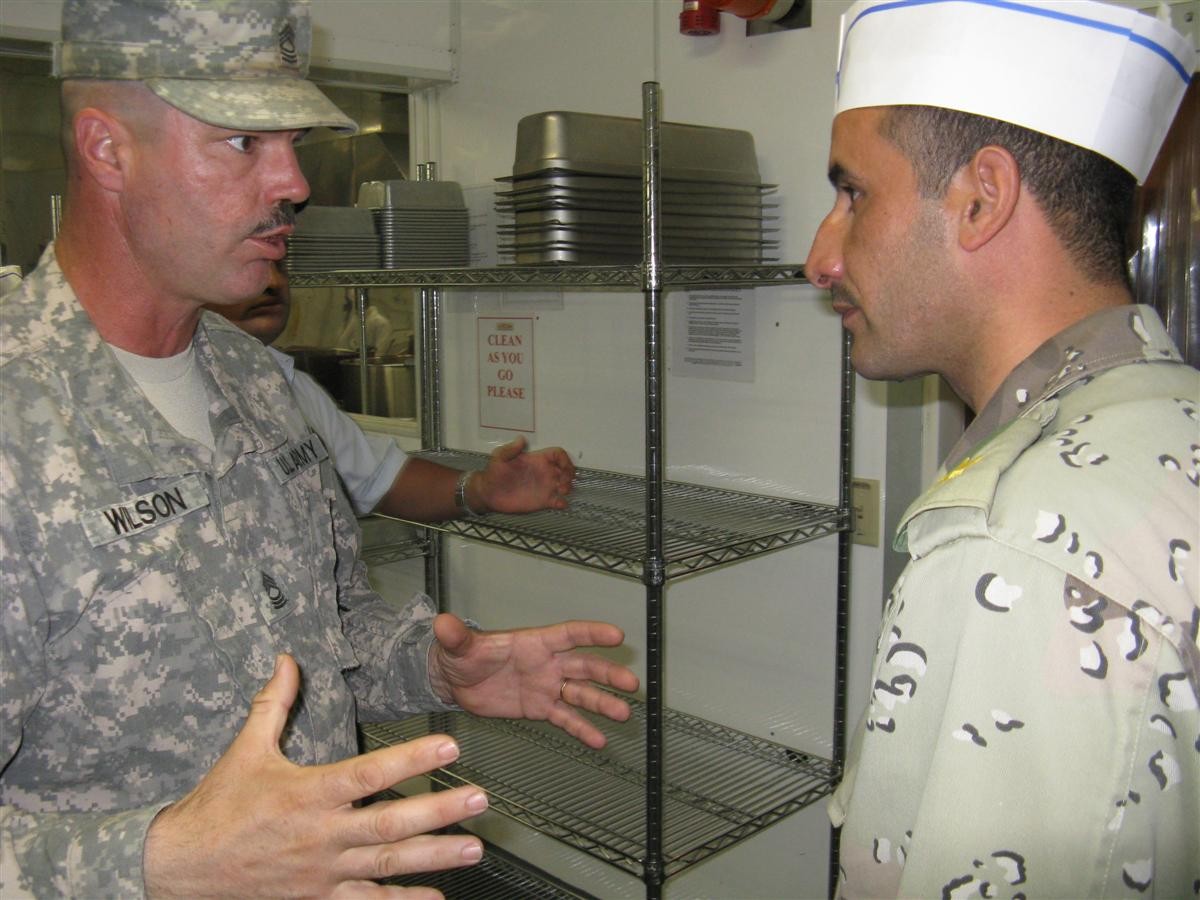
CONTINGENCY OPERATING BASE ADDER, Iraq -Visitors from the Iraqi Army's preventative health and food preparation teams, 10th Division Iraqi Army toured the dining facility here April 28.
"They're here to see our process, to see how we operate our DFAC," said Master Sgt. Paul Wilson, 287th Sustainment Brigade senior food service noncommissioned officer in charge. Addressing the visitors, Wilson said "one of our main concerns is keeping our areas clean and our food at the right temperatures to avoid people getting sick."
The preventive health team is Maj. Aqeel Muslim Nafea, medical clinic officer in charge; Lt. Rasoul Mohammad, 10th Div. IA public health officer; and Mohamad Aoda, IA DFAC manager.
Civilian DFAC manager, Kevin Sovoy, showed the refrigerated trailers outside the DFAC. "We check the temperature every four hours to make sure it remains steady," he said. "There is a separate trailer for ice - food and ice cannot be stored together for hygienic reasons."
Nafea asked about the expiration dates on the food. Sovoy said they arrange the stock so the oldest stock is used first. The group was surprised that dry goods were kept cool in an air-conditioned trailer. He said summer temperatures in Iraq are extreme enough to affect the dry goods. Paper and plastic ware are the only items not stored in the air conditioned trailer.
Next, was sanitation. Savoy said there was no trash in the DFAC compound and the restrooms were kept clean and located a good distance away from the DFAC. Trash is emptied and washed out every few hours.
"We keep these clean - all day, every day. Refuse draws pests. Anything we can do to reduce their numbers keeps the diners safer," said Savoy.
He explained that all diners must have appropriate clothing- to dine and work while in the DFAC. Sandals, clothing permeated with diesel or other strong fumes, tank tops or sweat drenched clothing aren't allowed in the facility for the diner's safety and hygienic purposes.
After donning headgear, the group went into the kitchen as another civilian contractor took over the tour.
Civilian Savka Smildil showed the group the warming oven and how each food item must be labeled with the date and time. "It can be in the warming oven for no longer than five hours," Smildil said. Food held longer than five hour will be discarded.
"We use a progressive system to avoid waste," Smildil said. "Our cooks only make a few pans to start and replace as necessary throughout the meal."
Smildil then showed the vegetable and meat preparation areas. They are kept separate to avoid cross-contamination. The refrigerator and freezer temperatures are monitored consistently to avoid bacterial growth and insure freshness. Products are also date labeled. The guests seemed particularly interested in the safety board and messages posted throughout the kitchen.
"The Iraqi Army continues to strengthen their sanitation and food preparation practices," said Master Sgt. Dennis Soper, COB Adder logistics management assistance team NCOIC. "This tour highlights how diligently the U.S. Armed Forces work to ensure our troops are kept healthy and well-fed."

Social Sharing